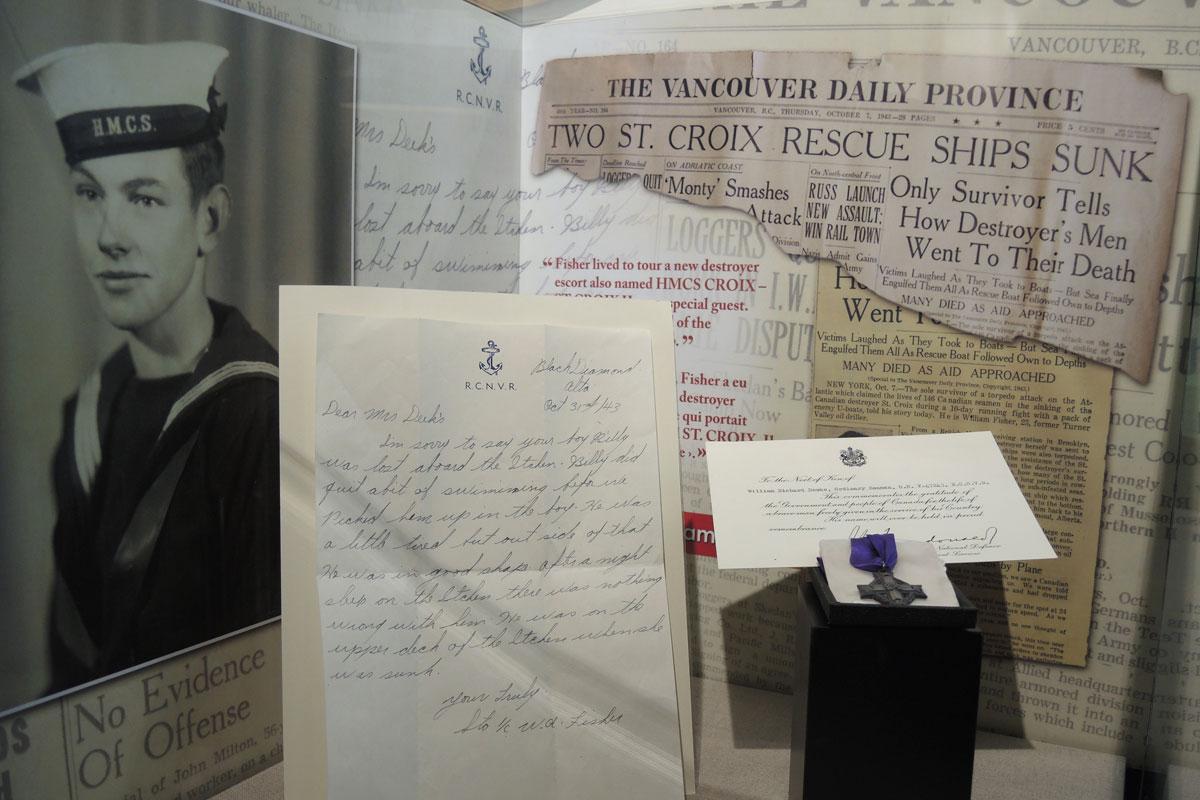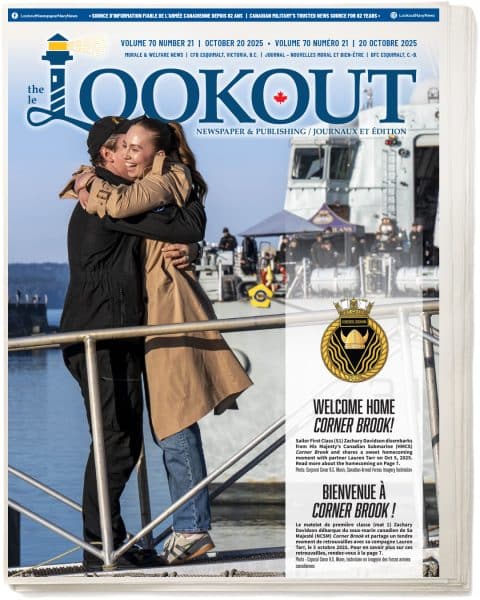
A letter home to the mother of a crewmate penned by Able Seaman William Fisher. The stoker was the lone survivor of deadly German U-Boat attack on HMCS St. Croix that claimed the lives of 146 seamen. Photo by Peter Mallett, Lookout
Peter Mallett, Staff Writer ~
The importance of the longest battle of the Second World War is quickly felt when one enters the central room in the CFB Esquimalt Naval and Military Museum.
It is the largest room in the historic red brick building located in the heart of CFB Esquimalt’s Naden location, one that is dedicated to the Battle of the Atlantic.
A variety of display cases brim with historical artifacts, photographs, newspapers, and military equipment, visible from all angles for visitors to easily see the relics from over 70 years ago.
A video of the four-part documentary Convoy: War For the Atlantic plays on a loop from a screen mounted in the wall.
For added reality, mannequin sailors prepares to launch a depth charge from the deck of HMCS Sackville, with the much-needed Carley float close by should the ship sustain a direct hit from the enemy. Two photographs from the deck of Sackville create a realistic-looking background to the display.
The lighting, the mannequins’ pose, the subject matter all carve a realistic image of what life was like serving on a Canadian warship on the north Atlantic seas.
As visitors exit the display, a plaque ask them to ponder one question: What kind of country would Canada by today if the Battle of the Atlantic had been lost?
The question is a reminder that the battle on the seas was not predetermined says Clare Sharpe, Museum Exhibit Designer.
“It’s easy to forget those who came through these events didn’t know the outcome. They did not have the luxury of our retrospective certainty, but daily faced uncertainty, dread, fear, loss, turmoil and the prospect of a world unravelling.”
She says the inscribed question was an essential finishing touch for the Battle of the Atlantic Gallery that took her over two years to create, and was launched in May 2013.
“It was crucially important to have a gallery dedicated to the Battle of the Atlantic not only because of its historical importance to the Royal Canadian Navy, but also its great importance to the history of the Pacific Fleet and also Canada’s West Coast,” she adds.
The gallery pays homage to the role of Canada’s Navy and Merchant Navy in winning the Battle of the Atlantic.
To the right of the Sackville deck display is a glass display case for HMCS St. Croix, a warship sunk by a German U-Boat torpedoes on Sept. 20, 1943.
Within the display is a letter from St. Croix’s lone survivor, Stoker William Fisher, who penned the hand-written note to the mother of a young sailor who died in the sinking.
Sharpe says the gallery is a perfect fit for the museum’s overall goal: to collect, preserve, interpret and display the history of the naval presence on Canada’s West Coast and the military on Southern Vancouver Island.
For more information and upcoming events at the CFB Esquimalt Naval and Military Museum, visit their website at
www.navalandmilitarymuseum.org.
The museum is hosting its 5th annual Open House on Saturday July 14 from 10 a.m. – 4 p.m. in the Museum Square and buildings at Naden. This year’s theme is family friendly fun and activities for all ages.
Stay connected, follow Lookout Navy News:
Facebook: LookoutNewspaperNavyNews
Twitter: @Lookout_news
Instagram: LookoutNavyNews














